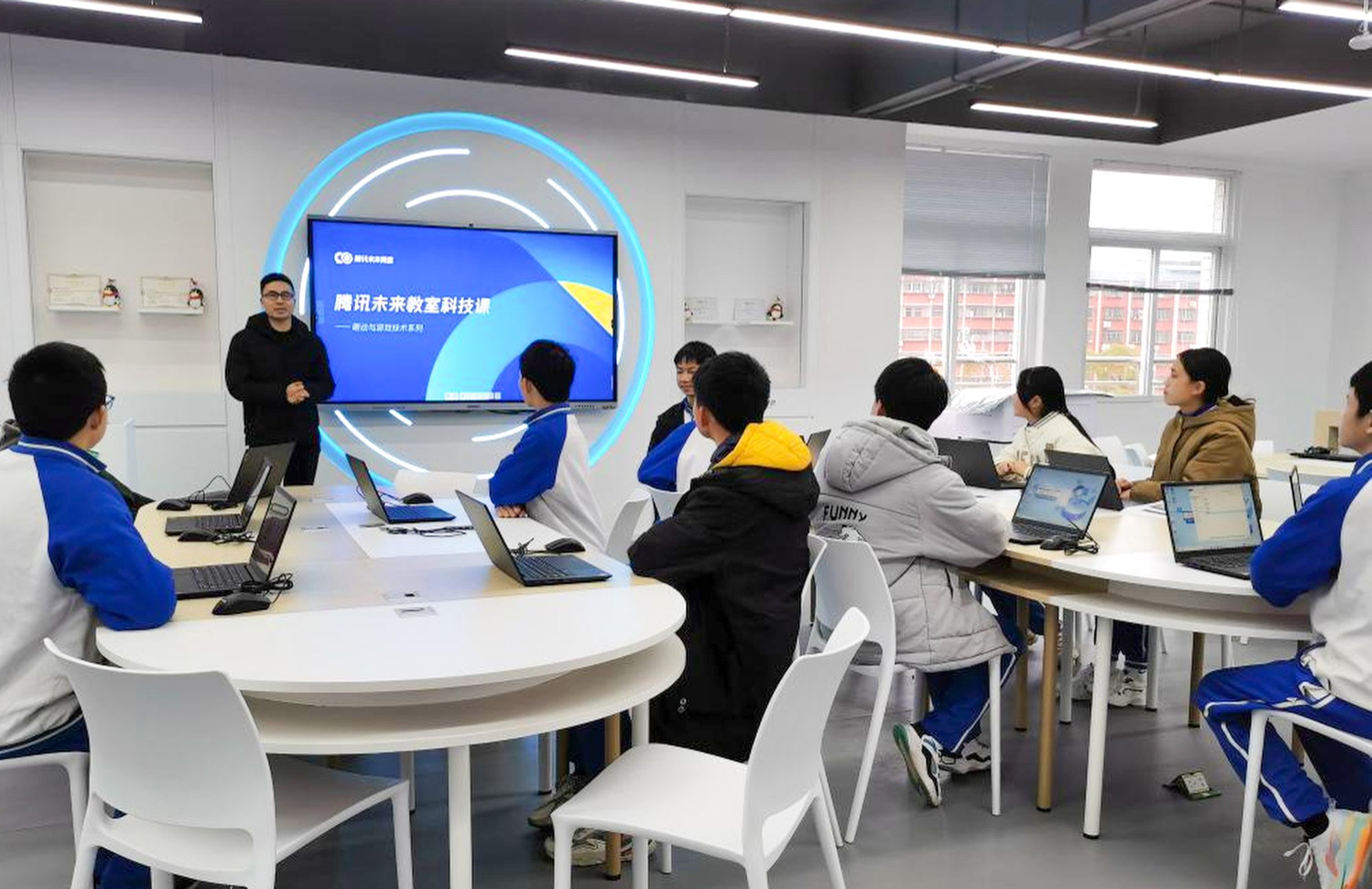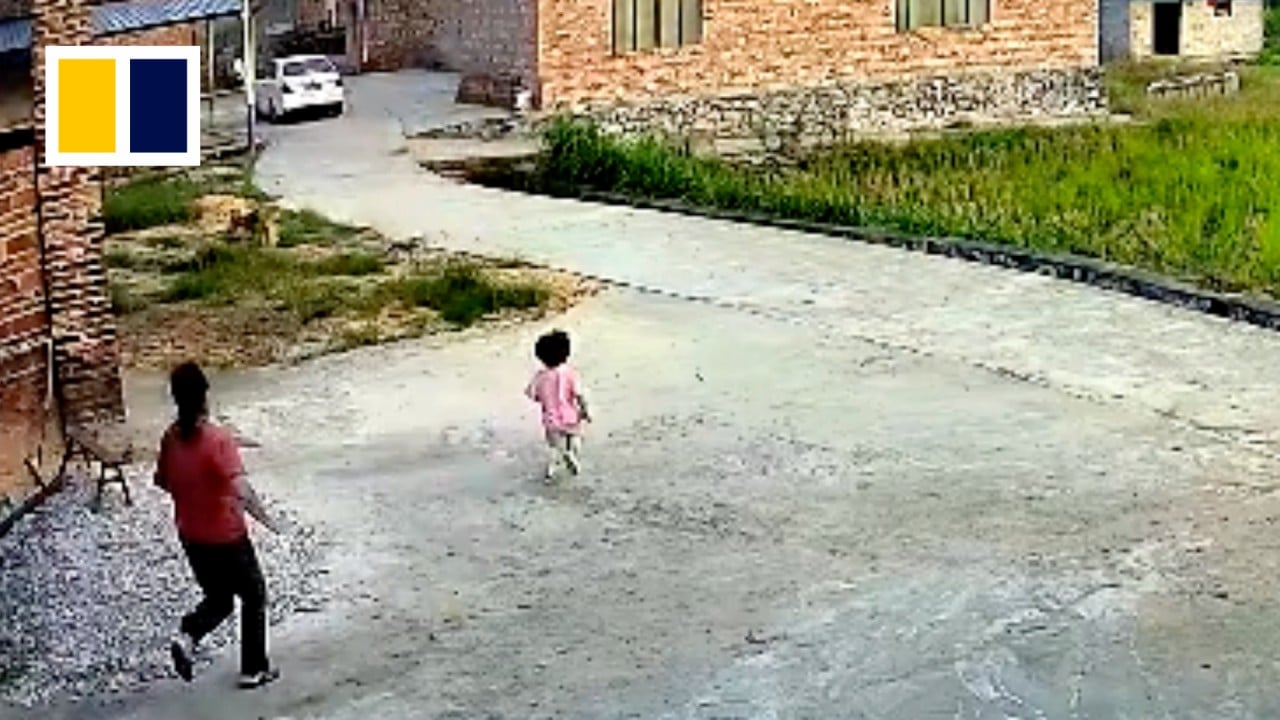The unlikely triumph over 102 other teams – some from big-city schools in Beijing and Guangdong – was all the more remarkable since urban schools, which enjoy comprehensive teaching resources, generally outperform at such competitions.
The significance of these courses is that they allow rural children to see a bigger world, offering them more choices
The victory of the Yunnan team – from a remote rural school – was a sign that China’s efforts to support artificial intelligence (AI) education in some of the country’s most far-flung regions had begun bearing fruit.
China has taken a series of steps to help promote educational uniformity between rural and urban primary schools through online teaching and equipment donations.
The introduction of modern classrooms and improved access to advanced technology and programming guidance have resulted in better-educated rural students who can perform as well or better than their urban peers in tech competitions.
“The significance of these courses is that they allow rural children to see a bigger world, offering them more choices,” Zhao said.
As AI begins to permeate much of daily life, many children can take extra curricular classes to learn tech-related skills like programming, a subject once taught only at the university level. Still, such educational opportunities are mostly only available in well-resourced urban areas.
One such educational equality initiative is “Future Classroom”, a project funded by Tencent Games to build digital teaching facilities in rural schools.
Under the programme, classrooms in 43 rural schools across 15 provinces have been equipped with futuristic technology, including computers, 3D printers, laser cutters, VR headsets and programmable hardware.

This project also provides teaching courses and holds competitions to stimulate student interest in learning about the advanced technology.
One of the annual competitions – the Dual Teacher Science and Innovation Camp – involves partnering a rural teacher with an urban guide teacher, who provides remote technical instruction so that the rural teacher can guide students in learning new skills.
By the time of the December contest, the students from the Jinlong Mingde Primary School, in Yunnan’s Chuxiong Yi autonomous prefecture, had developed a game based on the new tech skills they had acquired. Their “Mathematics Walnut Farm game” – based on Yunnan’s speciality walnuts – allowed players to learn maths while interacting with the design.
The team’s success at the major tech competition is one example of how comprehensive training – with hardware as well as online teaching support – is helping rural students to display creativity on a par with city peers who have much easier access to superior educational resources.
“First Lesson in AI Programming”, a charity project launched by the China Soong Ching Ling Foundation in collaboration with Tencent, for instance, recruits volunteers for remote teaching to help youngsters experience AI programming from scratch.
The courses aim to help cultivate student interest early in their development, but it also has another objective: to discover hidden AI talent in China’s vast rural areas – a long-term strategic move that could yield results in future AI rivalry with the United States.
The tech courses do not try to teach complex programming skills, but rather focus on cultivating children’s interests and broadening their horizons, allowing them to discover a world previously unavailable to them.
Thoughtful, well-designed course materials help students engage in scripted interactions that last about an hour, allowing them to understand AI functions and learn basic programming logic.
Zhao, the internet content creator, had taught an online AI science popularisation class under the First Lesson project to a primary school in Fengjie, in southwestern Chongqing municipality, in December.
Later, he visited the school in person. Fengjie county is famous for its dramatic, rugged and mountainous landscape along the Yangtze River. But while the terrain offers spectacular scenery, it is also a hindrance to local development.
It took a challenging six-hour journey from Chongqing’s airport through mountain roads for Zhao to reach the remote school.
Two-thirds of the students at the school are “left-behind children”, whose parents have migrated around the country for work.
But even here, far from the flashy tech hubs of the country’s biggest cities, children now have a ticket to China’s AI revolution.
“For many here, becoming migrant labour, like their parents, seems to be the only path in life,” Zhao said.
But the science classes may open up new horizons. “The simplicity of these science classes, void of complex coding, allows children to grasp the basics of AI,” Zhao added.
According to the First Lesson project website, the programme has expanded to 1,600 schools across the country. By the end of March, nearly 10,000 children from about 300 classrooms had taken part in the remote AI courses.
Liu Zhe, a principal at the Xinhe County Experimental Middle School, in northern Hebei province, told of a long-standing challenge before the drive to improve access to educational resources for underserved rural students took root.
Students who performed well at his school would often struggle to complete computer assignments once they entered college – sometimes requiring up to a week to finish tasks that their urban peers could complete within an hour.
The most important aspect was the learning process itself, during which our students saw the same world as city kids
“Before college, concepts like digitalisation and programming were abstract things for these students, who didn’t have the chance to use computers until university, leading to slower learning and even mockery [from classmates],” he said.
Then, Liu’s school was selected to participate in the Future Classroom project, giving students access to some of the most advanced AI technologies.
In the Dual Teacher Science and Innovation Camp competition, students from his school, who had been paired with a guide teacher from a Macau middle school, designed a water-dispensing robotic dog. The invention won them the top prize in Hebei.
“The most important aspect was the learning process itself, during which our students saw the same world as city kids,” said Yang Juanlu, a guide teacher for the school.
“Whether or not they achieve high marks, their attempts represent a significant step out of isolation and broaden their life’s possibilities.”
What a kids’ game about walnuts said about China’s education and tech goals - South China Morning Post
Read More
Bagikan Berita Ini


















0 Response to "What a kids’ game about walnuts said about China’s education and tech goals - South China Morning Post"
Post a Comment